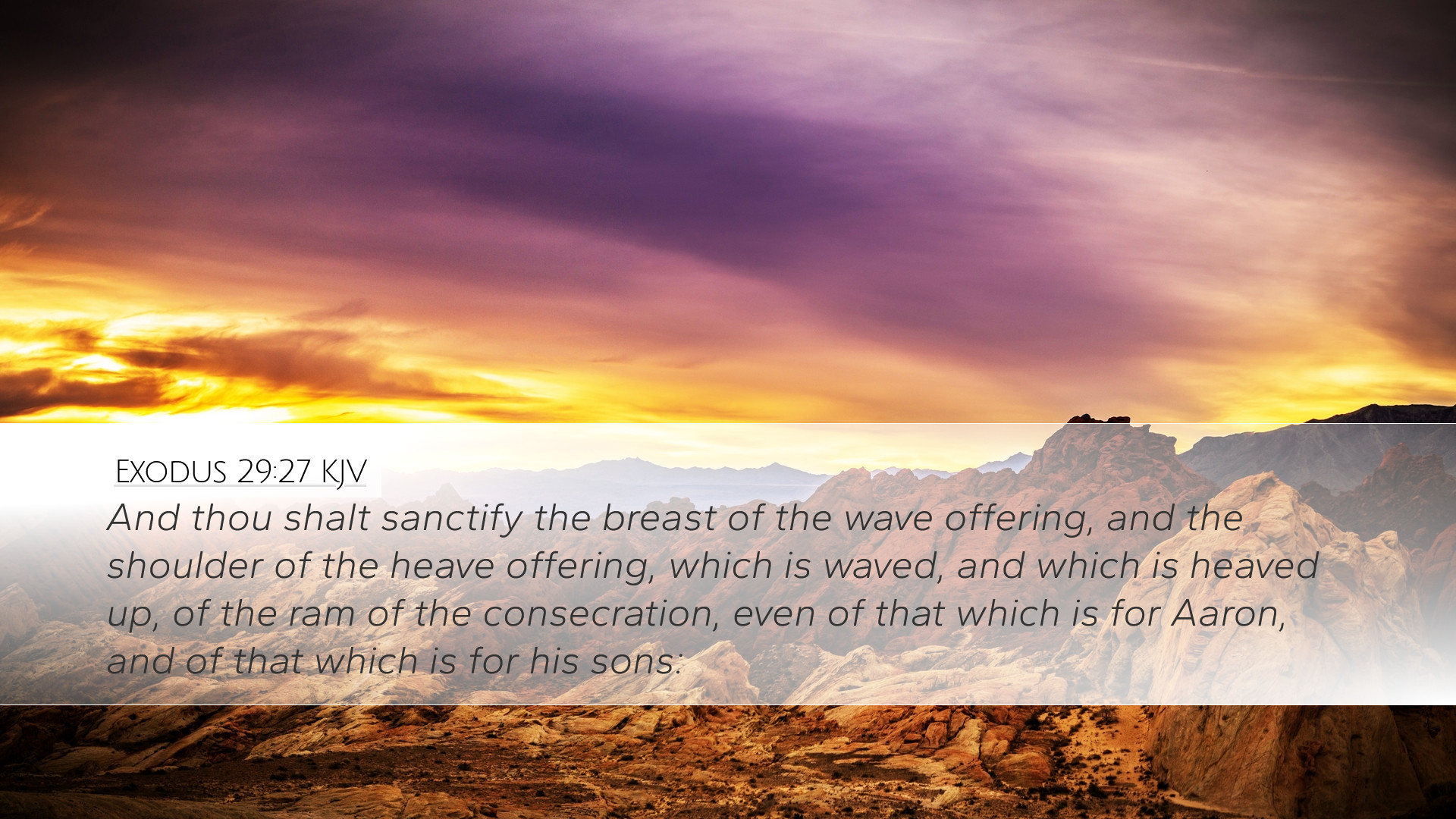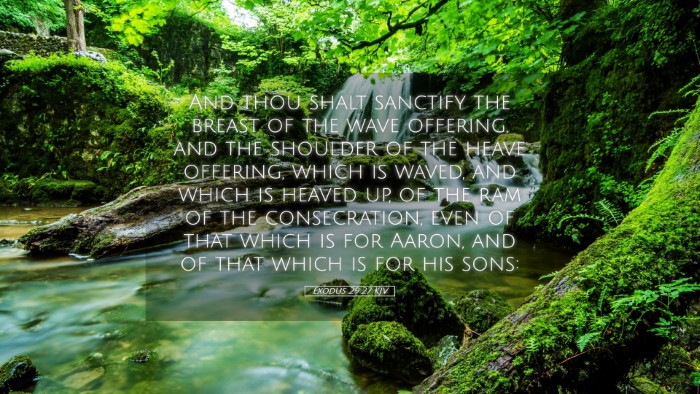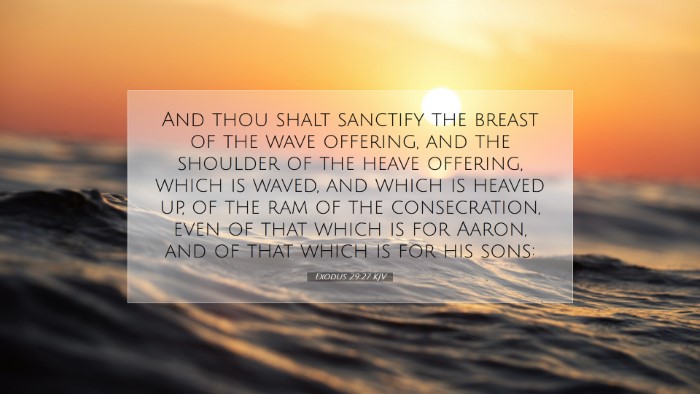Commentary on Exodus 29:27
Verse: Exodus 29:27 - "And thou shalt sanctify the breast of the wave offering, and the shoulder of the heave offering, which is waved, and which is heaved up, of the ram of the consecration, even of that which is for Aaron, and of that which is for his sons."
Introduction
The book of Exodus presents a profound narrative regarding the Israelites' journey and the establishment of their covenant relationship with God. Chapter 29 specifically outlines the consecration of the priests, emphasizing the importance of sacrificial offerings as a means of sanctification. Within this context, Exodus 29:27 highlights the specific offerings designated for Aaron and his sons, who represent mediators between God and the people.
Understanding the Offerings
In this verse, we see the instructions for the "breast of the wave offering" and the "shoulder of the heave offering." These offerings are significant for several reasons:
- Significance of Wave and Heave Offerings: The wave offering (elevated before the Lord) signifies the presentation of the offerings to God, while the heave offering (raised above) conveys a sense of gratitude and dedication of the material possessions to God. Both are acts of worship and acknowledgment of God's sovereign rule.
- Connection to Priesthood: The offerings are central to the priestly role of Aaron and his descendants. They are set apart not only by their ordination but also through their specific allocation of these sacred portions, underscoring their unique relationship with God and responsibility toward the congregation.
Insights from Commentators
Matthew Henry
Matthew Henry emphasizes the significance of the wave and heave offerings as acts of acknowledgment toward God. He notes, "In these offerings, we find a dual aspect of service - a recognition of God’s rightful claims over all creation and an expression of gratitude for His provisions." According to Henry, this exemplifies how offerings cater not just to the ritualistic aspects, but also embody a deep spiritual relationship with God, where the priests represent the people in this divine exchange.
Albert Barnes
Albert Barnes elaborates on the practical implications of these offerings by suggesting that they establish a principle of sacrifice in worship. He posits, "The consecration of the priests through these offerings serves as a foreshadowing of the ultimate sacrifice of Christ." Barnes further elucidates the importance of these acts in teaching the worshipers about holiness and the necessity of purity when approaching God. He sees this as foundational to the Israelite community's relationship with the divine.
Adam Clarke
Adam Clarke provides a detailed exploration of the ritual contexts, connecting the offerings to the broader themes of sacrificial worship found throughout the Pentateuch. Clarke argues that "these offerings served as physical manifestations of spiritual truths, teaching the people that the act of giving is integral to worship." He also highlights that the allocation of the offerings specifically to Aaron and his sons is a reminder that spiritual leadership comes with the responsibility of sanctity and public service to God’s people.
Theological Implications
Exodus 29:27 serves as a rich theological text that offers several implications for understanding God’s covenant relationship with His people:
- Consecration and Holiness: The necessity of sanctifying the offerings reflects the importance of holiness in approaching God. The priesthood, through these acts, is made holy not only for themselves but for the entire congregation.
- Intercession and Mediation: This verse encapsulates the role of priests as intermediaries between God and the Israelites. It beckons to a deeper understanding of Christ’s ultimate sacrificial role as our High Priest, fulfilling what these offerings once symbolized.
- Community and Worship: The communal aspect of the offerings emphasizes that worship involves both individual and collective devotion. The entire community is involved as they witness and participate in the consecration of their leaders.
Application for Today’s Church
For pastors and theologians today, Exodus 29:27 encourages a reflection on the nature of worship and the acts of giving within congregational life. It suggests several actionable principles:
- Teaching about Sacrificial Giving: Engage congregations with the significance of offerings as expressions of love and devotion to God, rather than mere financial transactions.
- Modeling Holiness: Pastoral leadership should be reflective of a life dedicated to holiness, acknowledging the weight of their role as spiritual leaders.
- Encouraging Community Worship: Foster a culture within the church that values collective worship experiences, recognizing the shared journey of faith among believers.
Conclusion
Exodus 29:27 is not merely an archaeological artifact of ancient practices; it is a rich text that offers insights into the nature of God’s relationship with humanity, particularly through the lens of worship and priesthood. By examining the insights from historical commentaries alongside contemporary application, we gain a better understanding of how God’s call for holiness and sacrificial living remains relevant in today’s church life.


